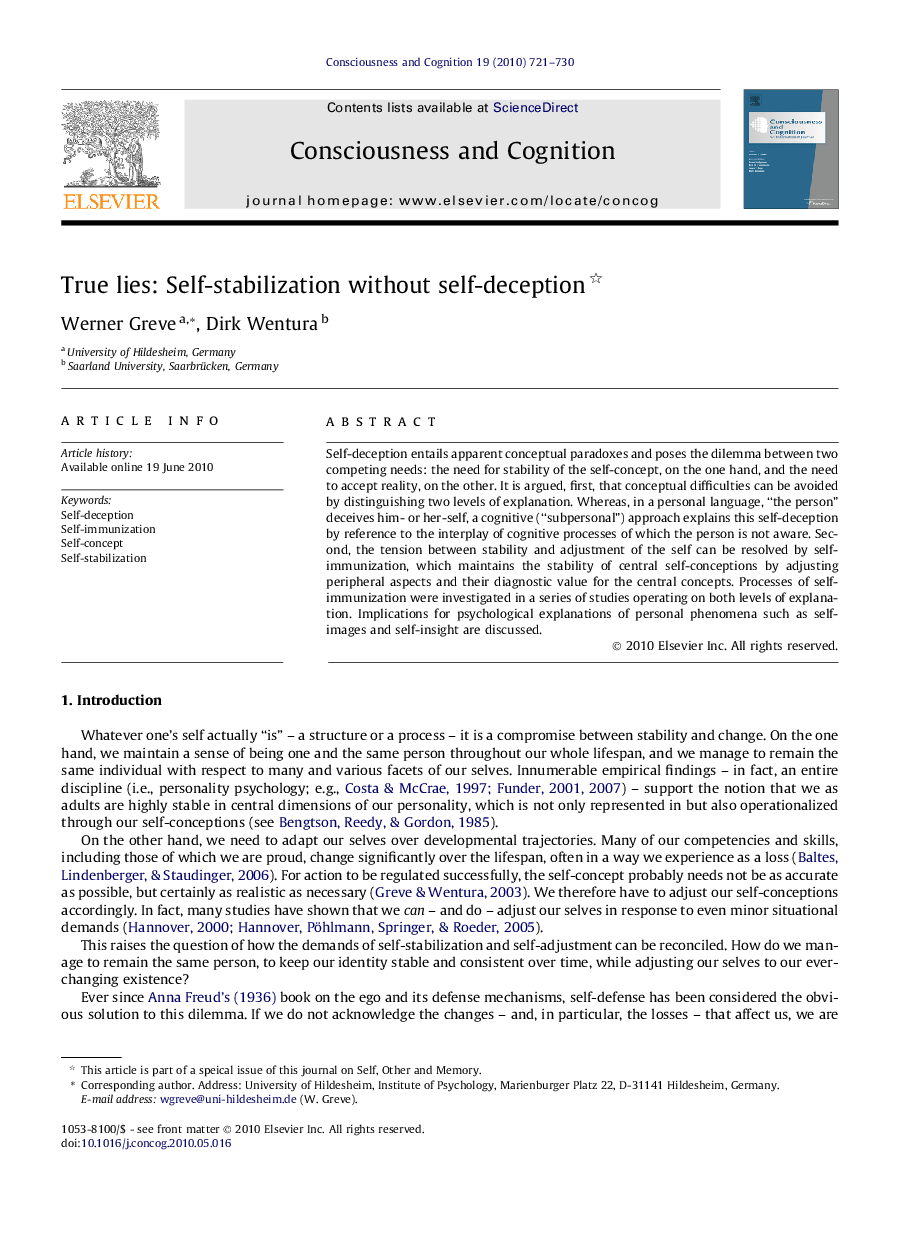| Article ID | Journal | Published Year | Pages | File Type |
|---|---|---|---|---|
| 10458671 | Consciousness and Cognition | 2010 | 10 Pages |
Abstract
Self-deception entails apparent conceptual paradoxes and poses the dilemma between two competing needs: the need for stability of the self-concept, on the one hand, and the need to accept reality, on the other. It is argued, first, that conceptual difficulties can be avoided by distinguishing two levels of explanation. Whereas, in a personal language, “the person” deceives him- or her-self, a cognitive (“subpersonal”) approach explains this self-deception by reference to the interplay of cognitive processes of which the person is not aware. Second, the tension between stability and adjustment of the self can be resolved by self-immunization, which maintains the stability of central self-conceptions by adjusting peripheral aspects and their diagnostic value for the central concepts. Processes of self-immunization were investigated in a series of studies operating on both levels of explanation. Implications for psychological explanations of personal phenomena such as self-images and self-insight are discussed.
Related Topics
Life Sciences
Neuroscience
Cognitive Neuroscience
Authors
Werner Greve, Dirk Wentura,
